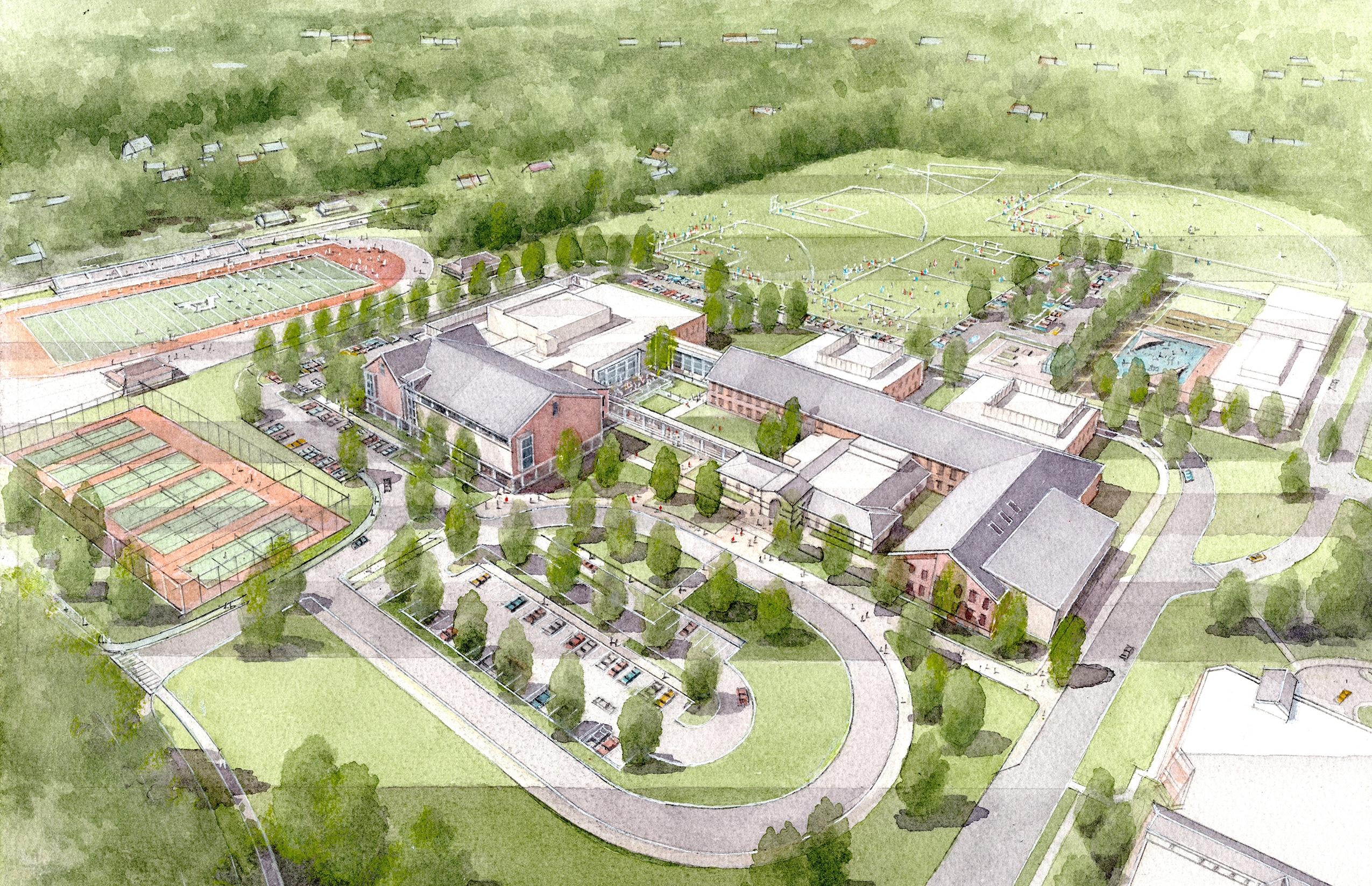A rendering released in April shows the proposed new Agawam High School. Most of the building would be new construction, other than the arched entrance facing Mill Street.
Reminder Publishing submitted photo
AGAWAM — Agawam voters have approved a debt exclusion that will fund the $230,245,404 high school building project.
According to unofficial results, in the June 11 special election, “yes” received 3,610 votes, 71.3% of the 5,065 votes cast. “No” received 1,455, or 28.7%.
Deborah Paquette, of the Vote Yes for AHS Committee, said she cried when she heard the results.
“It was just so powerful and the fact that it was such a high number, an overwhelming response to a ‘yes’… it’s very invigorating,” she said. “It gives me great confidence in the future of Agawam.”
Mayor Christopher Johnson said he was pleased by the results.
“I am and was a strong supporter for building a new high school and it was great to see that the people overwhelmingly also supported the concept,” he said.
Johnson said he believes voters saw this as a choice between building a new high school or renovating and repairing the existing one — something he’d been saying since his first presentation on the project in February. Paquette said once residents realized their taxes would increase regardless of how they voted, they tended to support the new school.
“Early May, I saw a turn where people were really understanding, like, ‘OK, let’s invest our money the right way. We have to spend it. Let’s put it to good use,’” she said.
Had voters said “no,” Johnson said, the town would have needed to embark on an over $70 million project to renovate and repair the existing building, parts of which date back to 1955. A renovation would not qualify for reimbursement from the Massachusetts School Building Authority, unlike new construction, which is expected to receive over $99 million in state aid.
Since local taxpayers would pay only a portion of the new-construction costs, the difference between renovation and new construction to the owner of the average single-family home would have been about $10 a month, Johnson said.
The project still has to be approved by the MSBA, which Johnson said may happen at its end-of-June meeting. He doesn’t anticipate the MSBA rejecting the project, as the town has given it all the information it requested and the project’s architectural and owner’s project manager partners say nothing in the process has been unusual. The worst-case scenario, he said, is that approval may be delayed to a later meeting.
“I hate to be that absolute, but I think the chances that the project won’t move forward as planned are extremely, extremely remote,” he said.
After receiving MSBA approval, the project would enter the design and development phase, where developers will spend nine months producing thousands of detailed drawings of the new school. Drawings will detail specifics like where the HVAC system will be located, and what materials will be needed to build it.
While that’s happening, the town will put out bids for construction materials and equipment that could take a while to ship. Johnson said Fontaine Bros. construction managers would rather have the materials at their ready than stop the project because they’re waiting for something to arrive.
“They are very well-experienced in building school projects,” he said. “They understand some pieces of equipment have lead times that go into years.”
Construction should begin next spring or summer, he said.
Asked what he’d like to say to the “no” voters, Johnson thanked them for coming out to the ballot box.
“Obviously, I respect their opinion, I respect the fact that they voted and I thank them for that, but, obviously, the overwhelming majority of residents believe that the better investment for Agawam is a new high school,” he said.
Paquette said she hopes they come around to her side.
“I’m compassionate and understanding of their decision, and I hope that overtime they will realize, once the construction is happening, that they’ll see the positive impact not only to our students’ education but to our community as a whole,” she said.
She added that she understands change is hard, and that she believed fear of it contributed to the “no” votes.
“We have to move with the times and keep pushing Agawam to be the best it can be,” she said.
Paquette thanked her fellow committee members Adrienne LaChappelle, Aleksandra Wrobel and Jessica Schmaelzle, as well as the Agawam community and unions for their support.



